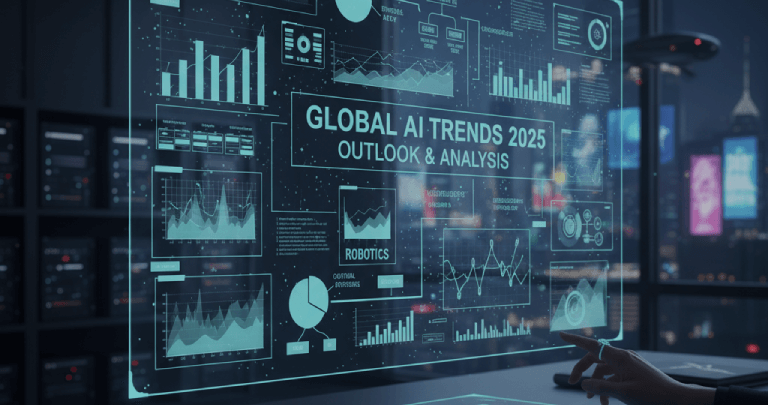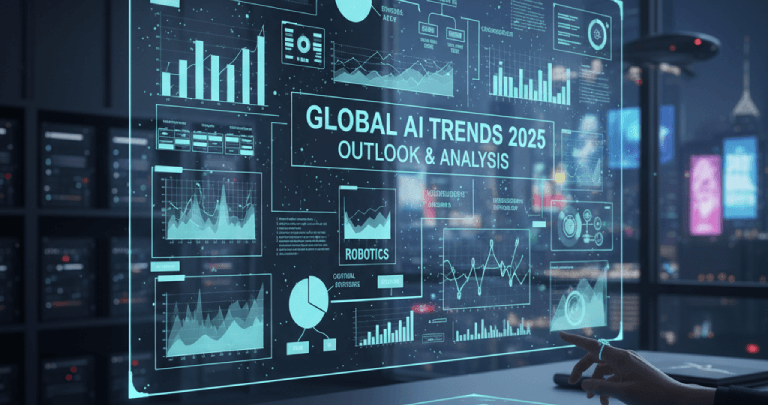Mary Meeker, a well-known researcher in the Internet and Cloud fields, points out in a study that AI will be the greatest of all recent technological revolutions


Mary Meeker is a famous
figure in the technology backstage of Silicon Valley, to the point of being known as the “Queen of the Internet”.
Between 1995 and 2019, she conducted annual events presenting trends for the Internet and Cloud sectors, becoming a reference
for investors tracking the evolution of technologies and companies. Every year, industry executives eagerly awaited her results
and presentations, as if it were a report delivered by a country’s Central Bank.
Starting in 2025, Mary
Meeker, now a partner at investment firm BOND, resumed publishing a trends study, this time focused on AI, titled Trends – Artificial Intelligence, recently made public. Once again, investors
and enthusiasts have a reason to eagerly await an annual, now AI-focused report.
The 2025 report already
comes packed with content and insights, so we prepared this blog to summarize the main highlights of what is predicted for
the AI world and its key trends.
The present and future of AI, according to Mary
Meeker
Artificial Intelligence
is no longer a promise of the future; it is the defining force of the present. What sets this wave apart from all previous
technological revolutions is its speed. While the Internet, mobile devices, and the Cloud reshaped society over the years,
AI platforms such as ChatGPT reached hundreds of millions of users within just a few months. Adoption has been not only fast
but global from day one.
This unprecedented scale
is matched by equally unprecedented investments. Leading tech companies are investing billions of dollars in research, development,
and infrastructure. New data centers, high-performance chips, and even expanded power grids are being built to sustain the
demand for AI training and usage. The result is a technological backbone unlike anything the world has ever seen, designed
to drive a new era of intelligence-driven applications.
But the journey is not
without obstacles. Deploying AI at scale still faces three central challenges: cost, reliability, and trust. Training and
inference require massive computing resources, and the use of APIs often leads to unpredictable expenses. At the same time,
issues such as hallucinations and lack of explainability highlight the need for responsible development and governance. As
regulation intensifies in areas like healthcare, finance, and education, companies are learning that ethical safeguards are
not optional but essential for sustainable growth.
Competition is another
defining trend. The United States and China are locked in a race for global AI leadership, with governments treating the technology
both as an economic advantage and a matter of national security. Meanwhile, open-source ecosystems are rapidly democratizing
innovation, enabling startups to scale faster and lowering costs for companies that can leverage community-driven models.
The balance between proprietary and open approaches will shape AI’s future landscape.
The impact of AI on
work is equally transformative. Companies predict that 20% to 30% of their engineering teams will focus exclusively on AI
in the coming years. Beyond automation, entirely new categories of roles are emerging: AI engineers, prompt designers, and
governance specialists. Knowledge workers are already seeing their productivity redefined through AI copilots and agents,
acting as a new layer of intelligence in daily tasks.
Looking ahead, AI is
poised to become a true general-purpose technology, much like electricity or the Internet. Its most powerful applications
will emerge at the intersection of intelligence and industry expertise, where raw models are adapted into solutions
that solve real-world problems. Companies that move quickly and responsibly will not only benefit from efficiency but also
lead the creation of the next wave of innovation.
Other trends in AI
ICONIQ is another investment
firm that outlined perspectives for AI, publishing an extensive study also included in this article for additional insights.
The 2025 State of AI Report – The Builder’s Playbook highlights how organizations
are not only experimenting with AI but also actively scaling products, transforming teams, and rethinking business models
to meet the demands of this new era.
AI-native companies,
those built from the ground up around AI, are outperforming their peers. Nearly half of these companies have already reached
scale, while AI-enabled companies are still in the early stages of adoption. The difference lies in speed: AI-native organizations
advance faster in product development cycles, often skipping trial-and-error phases that slow down traditional SaaS providers.
Most companies rely
on third-party APIs, but leaders are going further, refining base models and even building proprietary systems. Accuracy is
the top priority, followed by customization and privacy, while cost has become a growing concern. The trend is toward multimodel
strategies, in which companies combine OpenAI, Anthropic, Google, Meta, and open-source solutions like Mistral and DeepSeek
to optimize performance, cost, and compliance.
Scaling AI is expensive.
API fees, inference, and retraining costs are the hardest to control, and high-growth companies spend significantly more as
they scale. To manage budgets, companies are turning to open-source models, inference optimization, and more efficient hardware.
Despite this, most organizations still rely on cloud- and API-based infrastructures for speed and flexibility.
Beyond costs, companies
face trust challenges: hallucinations, explainability, and regulatory compliance. Customers increasingly expect transparency,
pressuring companies to provide reports and insights on how AI influences outcomes. Advanced monitoring systems, complete
with drift detection and automated retraining pipelines, are becoming the norm for scaled products.
Pricing strategies are
evolving. While many vendors initially bundled AI features into premium tiers, the market is shifting toward usage and outcome-based
pricing. Nearly 40% of companies plan to change their pricing models within the next year, directly linking value to consumption
and ROI.
The AI revolution is
also reshaping the workforce. AI-dedicated leadership roles, such as Chief AI Officers, are now common among companies with
revenues above $100 million. Demand for hires is strongest for AI/ML engineers, data scientists, and AI product managers,
with companies predicting that up to 30% of engineering teams will focus exclusively on AI by 2026.
AI is not only transforming
customer-facing products; it is also boosting internal productivity. Budgets for internal AI tools are doubling, with companies
spending up to 8% of revenue. The most impactful applications are programming copilots, which deliver productivity gains of
15–30%. Other key areas include marketing automation, knowledge retrieval, and sales enablement.
Visionnaire’s perspective
At Visionnaire, we believe
that navigating the AI era requires more than keeping up with technological change. It demands expertise, adaptability,
and trust. With nearly 30 years of experience in software development, we have helped organizations embrace every wave of
digital transformation, from the early days of the web to the rise of mobile and cloud computing.
Today, as an AI Factory,
we apply this legacy to the challenges of artificial intelligence. Our team is prepared to design, develop, and scale AI solutions
that are both powerful and responsible. We help our clients capture AI’s productivity gains while managing risks such
as bias, cost, and compliance. With Visionnaire, companies can confidently enter the AI era, leveraging innovation not as
a risk but as a competitive advantage.
The AI era is no longer
on the horizon; it has already arrived, accelerating faster than any previous revolution. The question is not whether companies
should adopt it, but how quickly they can adapt to seize its opportunities. Click here
to learn how Visionnaire can help your company.
Sources
Trends - Artificial Intelligence (AI)
Mary Meeker / Jay Simons / Daegwon Chae / Alexander Krey
2025 State of AI Report – The Builder’s Playbook
ICONIQ




